AI-Powered Email Marketing: Boosting Campaign Success in 2025
Email marketing remains a key driver for businesses, but standing out in today’s digital world demands more than a well-crafted message. Artificial intelligence (AI) is revolutionizing email campaigns, unlocking new ways to increase engagement, conversions, and ROI. This post dives into AI’s transformative role in email marketing, highlighting strategies and practical applications to elevate your campaigns.
Key Points
Email marketing is a cornerstone of business communication, with billions of emails exchanged daily.
AI supercharges email marketing with tailored personalization, predictive insights, and precise segmentation.
Businesses using AI in email marketing see stronger growth compared to those relying on traditional methods.
Metrics like open rates, click-through rates, and bounce rates gauge email campaign success.
AI-driven personalized emails and optimized subject lines significantly boost engagement and conversions.
The Power of Email Marketing
Why Email Marketing Thrives in 2025
In the fast-evolving digital marketing landscape, email remains a timeless strategy.
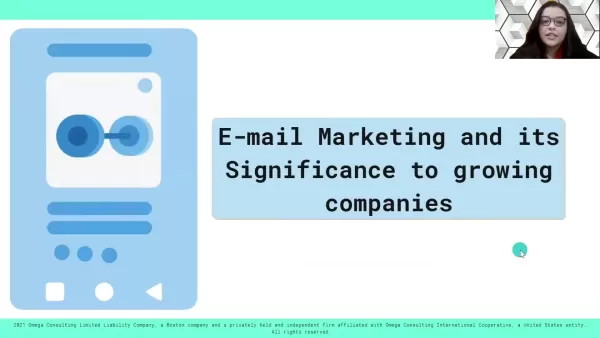
Email marketing continues to be a critical channel for connecting with customers and fueling business growth. Key stats highlight its impact:
- Over 319 billion emails are sent and received globally each year.
- This number is expected to surpass 370 billion by 2025.
- Nearly 4.3 billion email users existed in 2023, offering a massive audience reach.
These figures emphasize email’s lasting value and its potential for businesses to engage a broad, active audience. Email marketing drives growth by boosting engagement, conversions, and lead generation.
Core Objectives of Email Marketing Campaigns
Email marketing campaigns focus on several key goals
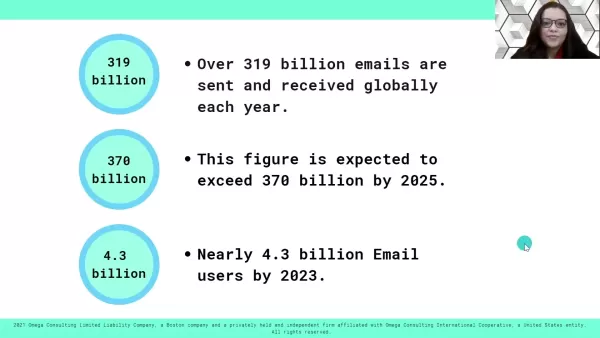
:
- Boosting Engagement: Creating meaningful connections through tailored messages and relevant content.
- Driving Conversions: Prompting actions like subscribing to a list or downloading a resource.
- Generating Leads: Sparking customer interest in products or services.
By prioritizing these objectives, businesses can craft impactful email campaigns that deliver measurable results and support long-term success.
Measuring Email Marketing Success with KPIs
Tracking specific KPIs is essential to evaluate email campaign performance
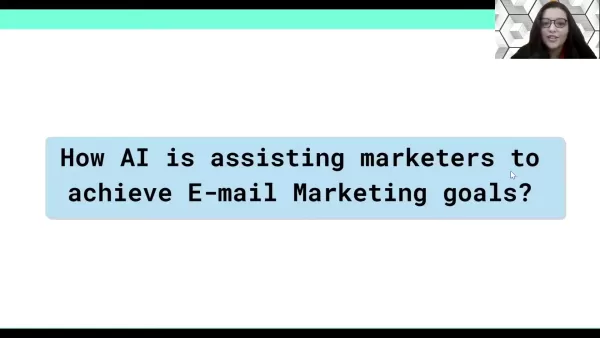
. These metrics offer insights into effectiveness and areas for improvement:
- Open Rate: The percentage of subscribers opening an email, reflecting strong subject lines and relevant content.
- Click-Through Rate (CTR): The share of recipients clicking on links or calls-to-action, indicating compelling email content.
- Bounce Rate: The percentage of emails undelivered due to invalid recipient addresses, signaling list quality issues.
Monitoring these KPIs empowers marketers to refine campaigns and make data-driven decisions for better results.
AI’s Game-Changing Role in Email Marketing
How AI Drives Email Marketing Success
Research shows 82% of marketers achieve higher open rates with AI, and 75% report improved click-through rates
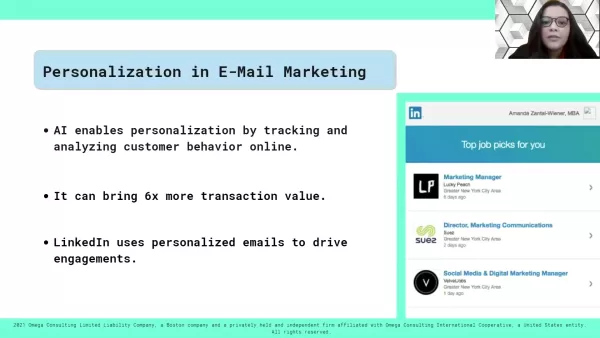
. AI is reshaping email marketing by streamlining planning, creation, and execution of campaigns.
Every industry embraces automation and AI, and marketing is no exception. Leveraging AI in email marketing can exponentially grow your business. AI enhances capabilities in key areas:
- Personalization: AI tracks and analyzes customer behavior, delivering six times higher transaction value.
- Subject Line Optimization: AI tools create compelling subject lines to boost click-through rates.
- Predictive Analytics: AI uses algorithms and machine learning to forecast customer behavior.
- Smart Newsletters: AI curates newsletters with personalized content for individual audiences.
- Customized Offers: AI tailors unique promotions and discounts for different customers.
AI-Powered Features Transforming Email Marketing
AI introduces powerful tools to elevate email marketing campaigns. Here are the most impactful features:
- Personalization: AI analyzes online customer behavior for highly tailored emails
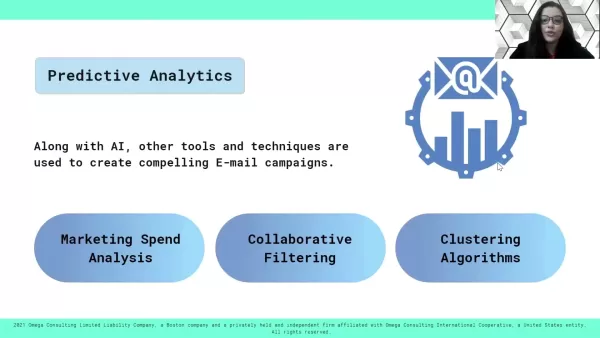
. This can drive six times more transaction value. For instance, LinkedIn uses personalized emails to boost engagement, prioritizing customer experience.
- Triggered Personalized Emails: Automated emails triggered by actions like product views or subscriptions, such as welcome emails, transactional emails, or abandoned cart reminders.
- Subject Line Optimization: AI tools craft subject lines that increase open rates, like OpenTable’s review-request emails.
- Predictive Analytics: AI uses data modeling to predict customer actions, as seen with Netflix’s targeted recommendations.
- Smart Newsletters: AI curates newsletters tailored to individual preferences, enhancing engagement.
- Customized Offers: AI creates personalized promotions for different customer segments.
- Smart Segmentation: AI enables precise audience segmentation for hyper-relevant messaging.
- Enhanced A/B Testing: AI streamlines A/B testing and provides actionable insights from results.
- Cross-Media Personalization: AI tailors emails based on customer behavior across channels, boosting e-commerce sales.
- Send Time Optimization: AI determines the best times to send emails for maximum engagement.
Pros and Cons of AI in Email Marketing
Pros
Enhanced Personalization: Customizing content to match individual preferences.
Improved Engagement: Boosting interactions with targeted, relevant messages.
Optimized Subject Lines: Crafting subject lines that increase open rates.
Predictive Analytics: Anticipating customer behavior for strategic campaigns.
Smart Segmentation: Delivering precise, relevant content to specific audiences.
Cons
Data Privacy Concerns: Ensuring ethical handling of customer data.
Implementation Costs: Upfront expenses for AI tools and training.
Over-Reliance on AI: Balancing automation with human creativity.
Complexity: Navigating advanced AI features and tools.
Integration Challenges: Aligning AI with existing marketing platforms.
Frequently Asked Questions (FAQ)
How does AI personalize email marketing?
AI tailors email content, subject lines, and send times by analyzing customer data, boosting engagement and conversions.
What are the key benefits of AI in email marketing?
AI enhances personalization, engagement, subject lines, predictive analytics, segmentation, and A/B testing, driving higher ROI.
Which industries benefit most from AI-powered email marketing?
E-commerce, retail, finance, healthcare, and customer-focused industries gain from AI-driven email marketing, increasing sales and loyalty.
What is predictive analytics in email marketing?
Predictive analytics uses AI to forecast customer behavior, enabling timely, targeted messages that improve conversion rates.
How does AI create smart newsletters?
AI curates newsletters with highly relevant, individualized content, increasing readership and engagement.
Related Questions
What’s the future of AI in email marketing?
AI will drive advanced personalization, predictive tools, and automation, enabling smarter campaigns, optimized send times, and churn prediction. Marketers adopting AI will see significant gains in engagement and conversions. AI-powered email marketing will focus on:
< p>Personalized Recommendations.Behavior-Based Automation.
Content Creation.
Predictive Segmentation.
Dynamic Content Optimization.
Related article
 Master Large Text Summarization with OpenAI: Ultimate Guide & Techniques
In today's data-driven world, efficiently processing large volumes of information is critical. This comprehensive guide demonstrates how to utilize OpenAI's advanced API technology for summarizing diverse text sources, from basic TXT files to complex
Master Large Text Summarization with OpenAI: Ultimate Guide & Techniques
In today's data-driven world, efficiently processing large volumes of information is critical. This comprehensive guide demonstrates how to utilize OpenAI's advanced API technology for summarizing diverse text sources, from basic TXT files to complex
 Meta Launches AI-Powered Smart Glasses Featuring Built-in Display and Wrist Controller
Meta unveiled its next-generation Ray-Ban smart glasses featuring an innovative heads-up display integrated into the right lens during its Meta Connect 2025 developer conference. The Meta Ray-Ban Display offers visual overlays for apps, notifications
Meta Launches AI-Powered Smart Glasses Featuring Built-in Display and Wrist Controller
Meta unveiled its next-generation Ray-Ban smart glasses featuring an innovative heads-up display integrated into the right lens during its Meta Connect 2025 developer conference. The Meta Ray-Ban Display offers visual overlays for apps, notifications
 Microsoft's PowerToys Set to Introduce Two Major Missing Windows Features
Windows users who've longed for automated light/dark mode switching or an easier way to resolve keyboard shortcut conflicts will soon have their wishes granted through Microsoft's PowerToys. The utility suite's latest 0.94 update introduces powerful
Comments (2)
0/200
Microsoft's PowerToys Set to Introduce Two Major Missing Windows Features
Windows users who've longed for automated light/dark mode switching or an easier way to resolve keyboard shortcut conflicts will soon have their wishes granted through Microsoft's PowerToys. The utility suite's latest 0.94 update introduces powerful
Comments (2)
0/200
![FredYoung]() FredYoung
FredYoung
 August 18, 2025 at 3:01:01 PM EDT
August 18, 2025 at 3:01:01 PM EDT
AI in email marketing sounds like a game-changer! I'm curious how it personalizes campaigns without feeling creepy. 😅 Any cool examples of brands nailing this?


 0
0
![SamuelAdams]() SamuelAdams
SamuelAdams
 August 9, 2025 at 7:00:59 AM EDT
August 9, 2025 at 7:00:59 AM EDT
AI in email marketing sounds like a game-changer! Curious how it handles spam filters though. 🤔


 0
0
Email marketing remains a key driver for businesses, but standing out in today’s digital world demands more than a well-crafted message. Artificial intelligence (AI) is revolutionizing email campaigns, unlocking new ways to increase engagement, conversions, and ROI. This post dives into AI’s transformative role in email marketing, highlighting strategies and practical applications to elevate your campaigns.
Key Points
Email marketing is a cornerstone of business communication, with billions of emails exchanged daily.
AI supercharges email marketing with tailored personalization, predictive insights, and precise segmentation.
Businesses using AI in email marketing see stronger growth compared to those relying on traditional methods.
Metrics like open rates, click-through rates, and bounce rates gauge email campaign success.
AI-driven personalized emails and optimized subject lines significantly boost engagement and conversions.
The Power of Email Marketing
Why Email Marketing Thrives in 2025
In the fast-evolving digital marketing landscape, email remains a timeless strategy.

Email marketing continues to be a critical channel for connecting with customers and fueling business growth. Key stats highlight its impact:
- Over 319 billion emails are sent and received globally each year.
- This number is expected to surpass 370 billion by 2025.
- Nearly 4.3 billion email users existed in 2023, offering a massive audience reach.
These figures emphasize email’s lasting value and its potential for businesses to engage a broad, active audience. Email marketing drives growth by boosting engagement, conversions, and lead generation.
Core Objectives of Email Marketing Campaigns
Email marketing campaigns focus on several key goals

:
- Boosting Engagement: Creating meaningful connections through tailored messages and relevant content.
- Driving Conversions: Prompting actions like subscribing to a list or downloading a resource.
- Generating Leads: Sparking customer interest in products or services.
By prioritizing these objectives, businesses can craft impactful email campaigns that deliver measurable results and support long-term success.
Measuring Email Marketing Success with KPIs
Tracking specific KPIs is essential to evaluate email campaign performance

. These metrics offer insights into effectiveness and areas for improvement:
- Open Rate: The percentage of subscribers opening an email, reflecting strong subject lines and relevant content.
- Click-Through Rate (CTR): The share of recipients clicking on links or calls-to-action, indicating compelling email content.
- Bounce Rate: The percentage of emails undelivered due to invalid recipient addresses, signaling list quality issues.
Monitoring these KPIs empowers marketers to refine campaigns and make data-driven decisions for better results.
AI’s Game-Changing Role in Email Marketing
How AI Drives Email Marketing Success
Research shows 82% of marketers achieve higher open rates with AI, and 75% report improved click-through rates

. AI is reshaping email marketing by streamlining planning, creation, and execution of campaigns.
Every industry embraces automation and AI, and marketing is no exception. Leveraging AI in email marketing can exponentially grow your business. AI enhances capabilities in key areas:
- Personalization: AI tracks and analyzes customer behavior, delivering six times higher transaction value.
- Subject Line Optimization: AI tools create compelling subject lines to boost click-through rates.
- Predictive Analytics: AI uses algorithms and machine learning to forecast customer behavior.
- Smart Newsletters: AI curates newsletters with personalized content for individual audiences.
- Customized Offers: AI tailors unique promotions and discounts for different customers.
AI-Powered Features Transforming Email Marketing
AI introduces powerful tools to elevate email marketing campaigns. Here are the most impactful features:
- Personalization: AI analyzes online customer behavior for highly tailored emails

. This can drive six times more transaction value. For instance, LinkedIn uses personalized emails to boost engagement, prioritizing customer experience.
- Triggered Personalized Emails: Automated emails triggered by actions like product views or subscriptions, such as welcome emails, transactional emails, or abandoned cart reminders.
- Subject Line Optimization: AI tools craft subject lines that increase open rates, like OpenTable’s review-request emails.
- Predictive Analytics: AI uses data modeling to predict customer actions, as seen with Netflix’s targeted recommendations.
- Smart Newsletters: AI curates newsletters tailored to individual preferences, enhancing engagement.
- Customized Offers: AI creates personalized promotions for different customer segments.
- Smart Segmentation: AI enables precise audience segmentation for hyper-relevant messaging.
- Enhanced A/B Testing: AI streamlines A/B testing and provides actionable insights from results.
- Cross-Media Personalization: AI tailors emails based on customer behavior across channels, boosting e-commerce sales.
- Send Time Optimization: AI determines the best times to send emails for maximum engagement.
Pros and Cons of AI in Email Marketing
Pros
Enhanced Personalization: Customizing content to match individual preferences.
Improved Engagement: Boosting interactions with targeted, relevant messages.
Optimized Subject Lines: Crafting subject lines that increase open rates.
Predictive Analytics: Anticipating customer behavior for strategic campaigns.
Smart Segmentation: Delivering precise, relevant content to specific audiences.
Cons
Data Privacy Concerns: Ensuring ethical handling of customer data.
Implementation Costs: Upfront expenses for AI tools and training.
Over-Reliance on AI: Balancing automation with human creativity.
Complexity: Navigating advanced AI features and tools.
Integration Challenges: Aligning AI with existing marketing platforms.
Frequently Asked Questions (FAQ)
How does AI personalize email marketing?
AI tailors email content, subject lines, and send times by analyzing customer data, boosting engagement and conversions.
What are the key benefits of AI in email marketing?
AI enhances personalization, engagement, subject lines, predictive analytics, segmentation, and A/B testing, driving higher ROI.
Which industries benefit most from AI-powered email marketing?
E-commerce, retail, finance, healthcare, and customer-focused industries gain from AI-driven email marketing, increasing sales and loyalty.
What is predictive analytics in email marketing?
Predictive analytics uses AI to forecast customer behavior, enabling timely, targeted messages that improve conversion rates.
How does AI create smart newsletters?
AI curates newsletters with highly relevant, individualized content, increasing readership and engagement.
Related Questions
What’s the future of AI in email marketing?
AI will drive advanced personalization, predictive tools, and automation, enabling smarter campaigns, optimized send times, and churn prediction. Marketers adopting AI will see significant gains in engagement and conversions. AI-powered email marketing will focus on:
< p>Personalized Recommendations.Behavior-Based Automation.
Content Creation.
Predictive Segmentation.
Dynamic Content Optimization.
 Master Large Text Summarization with OpenAI: Ultimate Guide & Techniques
In today's data-driven world, efficiently processing large volumes of information is critical. This comprehensive guide demonstrates how to utilize OpenAI's advanced API technology for summarizing diverse text sources, from basic TXT files to complex
Master Large Text Summarization with OpenAI: Ultimate Guide & Techniques
In today's data-driven world, efficiently processing large volumes of information is critical. This comprehensive guide demonstrates how to utilize OpenAI's advanced API technology for summarizing diverse text sources, from basic TXT files to complex
 Meta Launches AI-Powered Smart Glasses Featuring Built-in Display and Wrist Controller
Meta unveiled its next-generation Ray-Ban smart glasses featuring an innovative heads-up display integrated into the right lens during its Meta Connect 2025 developer conference. The Meta Ray-Ban Display offers visual overlays for apps, notifications
Meta Launches AI-Powered Smart Glasses Featuring Built-in Display and Wrist Controller
Meta unveiled its next-generation Ray-Ban smart glasses featuring an innovative heads-up display integrated into the right lens during its Meta Connect 2025 developer conference. The Meta Ray-Ban Display offers visual overlays for apps, notifications
 Microsoft's PowerToys Set to Introduce Two Major Missing Windows Features
Windows users who've longed for automated light/dark mode switching or an easier way to resolve keyboard shortcut conflicts will soon have their wishes granted through Microsoft's PowerToys. The utility suite's latest 0.94 update introduces powerful
Microsoft's PowerToys Set to Introduce Two Major Missing Windows Features
Windows users who've longed for automated light/dark mode switching or an easier way to resolve keyboard shortcut conflicts will soon have their wishes granted through Microsoft's PowerToys. The utility suite's latest 0.94 update introduces powerful
 August 18, 2025 at 3:01:01 PM EDT
August 18, 2025 at 3:01:01 PM EDT
AI in email marketing sounds like a game-changer! I'm curious how it personalizes campaigns without feeling creepy. 😅 Any cool examples of brands nailing this?


 0
0
 August 9, 2025 at 7:00:59 AM EDT
August 9, 2025 at 7:00:59 AM EDT
AI in email marketing sounds like a game-changer! Curious how it handles spam filters though. 🤔


 0
0





























